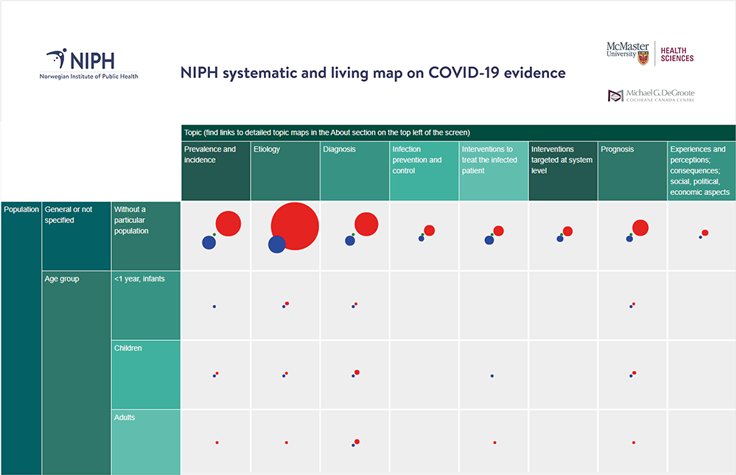Map of COVID-19 evidence
Article
|Last update
This content is archived and will not be updated.

This project was meant to help decision makers and researchers navigate the research in the covid-19 pandemic. Please note that this map will no longer being updated.
As of 9 February 2021, the map contained 17,607 publications categorised by topic, population, and publication type. Together with EPPI Centre, we screened 108,986 references retrieved through our searches. The map includes all systematic reviews, health technology assessments, RCTs, prospective non-randomized studies with control group and method papers identified up to 4th January 2021.
Please note that this map of COVID-19 evidence will no longer be updated. We have shared all our information from the map with Epistemonikos who we now collaborate with. We recommended that you use the COVID-19 Evidence found at their L∙OVE platform for COVID-19 evidence.
All our maps, maim map and topic categories, will be available to the end of 2021:
- Main map: NIPH systematic and living map on COVID-19 evidence
- Etiology
- Diagnosis
- Infection prevention and control
- Interventions to treat the infected patient
- Prognosis
- Experiences and perception, social, political, economic aspects
In December 2020, a living map of the latest evidence-based recommendations for the prevention and care of COVID-19, became publicly available. This recommendation map, our “sister-map”, is produced by an international consortium of researchers spanning six continents. The work is led by Prof. Schünemann with members of Cochrane Canada, McMaster University’s WHO Collaborating Centre for Infectious Diseases, Research Methods and Recommendations, also including NIPH.


